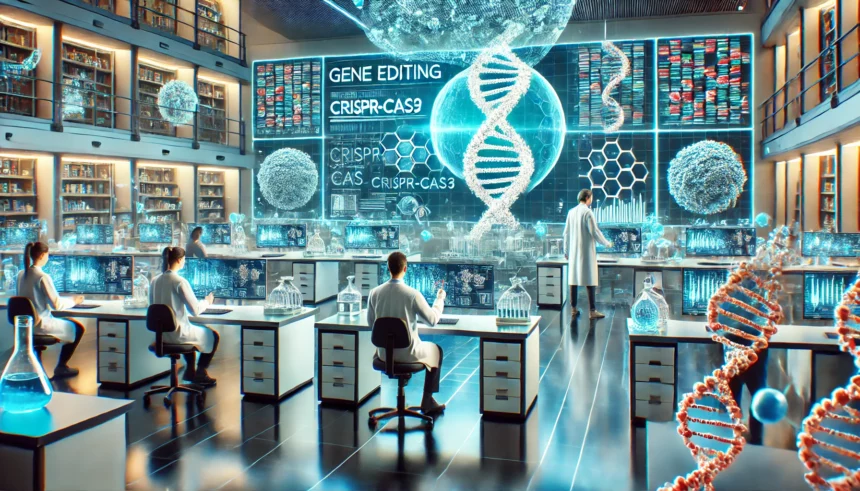Revolutionary Biotech Discoveries in Medicine
Welcome to the exciting frontier where technological innovation meets healthcare. In this article, we explore how recent biotech breakthroughs are transforming medicine, offering new hope and enhanced treatment options for various diseases.
From Past to Present: The Evolution of Biotechnology
Biotechnology’s role in medicine has evolved dramatically from ancient herbal remedies to cutting-edge genetic interventions. The 20th century saw milestones like the creation of synthetic insulin and the development of vaccines, which set the stage for today’s advanced genetic engineering techniques.
Modern biotechnology has given rise to powerful tools like CRISPR-Cas9, enabling precise genetic alterations for targeted disease treatment. These advancements pave the way for personalized medicine, where treatments are specifically tailored to individual genetic profiles, enhancing efficacy and reducing side effects.
Gene Editing: A New Era of Medical Treatment
The realm of gene editing and gene therapy stands as a cornerstone of biotech innovation. These technologies allow for the precise correction of genetic defects that lead to diseases such as cystic fibrosis and sickle cell anemia. Gene therapy introduces healthy genes into a patient’s body to replace malfunctioning ones, opening the door to potential cures for many genetic disorders.
Despite the excitement, ethical debates persist, focusing on the implications of gene manipulation and the necessity of regulating this powerful technology to prevent misuse.
Biotech’s Role in Combating Infectious Diseases
Biotechnology is also making strides in fighting infectious diseases through the development of novel vaccines and antimicrobial therapies. Advanced genetic engineering facilitates the creation of highly specific vaccines, while new diagnostic tools enable quicker disease detection and response, crucial for preventing outbreaks.
Advancing Cancer Treatments through Biotech
Cancer treatment is undergoing a revolution with the introduction of biotechnologies like immunotherapy, which utilizes the body’s immune system to fight cancer cells more effectively and with fewer side effects than traditional methods. Precision medicine and nanotechnology are also making it possible to treat cancer more accurately and less invasively.
Ethical Challenges in Biotechnology
The rapid advancement in biotech raises significant ethical questions, particularly regarding gene editing. Issues of genetic privacy, the accessibility of high-tech treatments, and the ethical use of genetic data are critical to address as we move forward with these technologies.
Looking Ahead: The Future Impact of Biotech on Health
The potential of biotech to reshape health care is immense. Future advancements could eradicate genetic diseases, personalize medicine to unprecedented levels, and tackle infectious diseases with innovative vaccines and treatments. The ongoing research promises not only to extend life but also to enhance the quality of life, presenting an optimistic view of the future of medicine.
Conclusion
Biotechnology is on the brink of profoundly transforming the medical landscape. With each breakthrough, we move closer to a world where diseases are not just treated but cured. As we continue to explore and invest in biotech, the promise of a healthier tomorrow becomes more tangible.
















